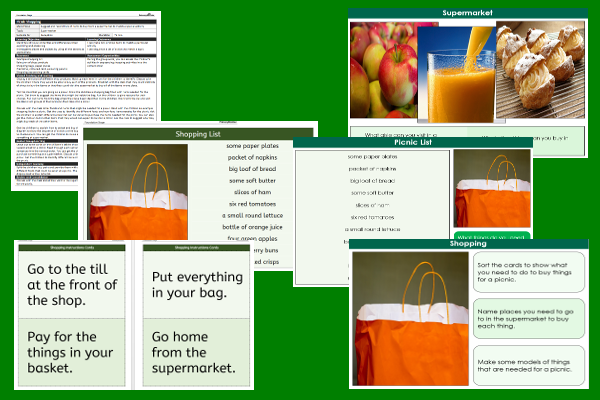Lesson Two – Picnic Shopping

This curriculum topic teaching pack for the Foundation Stage gets the children to suggest and record lists of different items that can be bought from a supermarket shop to match a special event.
The class can identify and sequence actions to describe how to select and pay for an item when shopping for something in a supermarket.
Download this teaching pack including a lesson plan, classroom activities and an interactive presentation to teach the children to suggest and record lists of different items that can be bought from a supermarket shop to match a special event
Activities in this teaching pack include a display poster to identify products that can be sold in different aisles in a supermarket by reading a shopping list and a set of cards to sequence all of the actions needed to buy something for a specific purpose in a supermarket.
The interactive presentation gets the children to explore how to record lists of items to buy from a supermarket to match a special event.
This lesson is part of a curriculum topic scheme of work to get the children to identify, describe and compare the range of products that can be sold in a supermarket and role-play buying and paying for shopping lists. There are teaching activities for shared learning, differentiated worksheets to support independent learning and interactive presentations to introduce concepts and key skills.
-

Garden Measurements
Practise using vocabulary words and non-standard measurements to find and compare the length of different things that can found in a garden
-

Family Holiday
Identify and recount events and experiences to describe what happened when on holiday at the seaside using sentences in the past tense
-

Money Shopping
Investigate and model some of the number skills that need to be used when working with money on a shopping trip
-

Supporting Others
Explore how to build strong and positive relationships with other pupils at school and family members at home through different situations and scenarios
